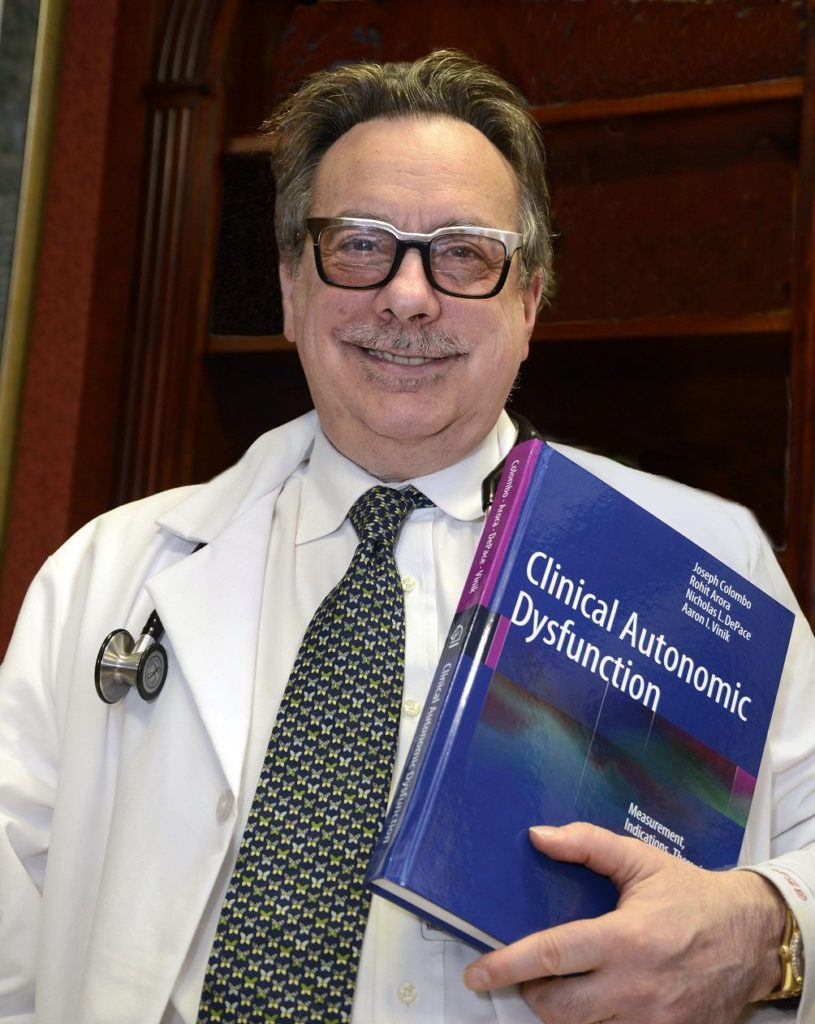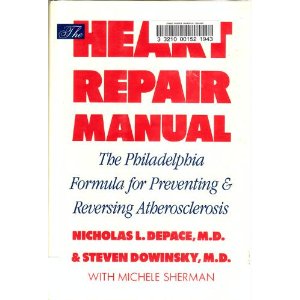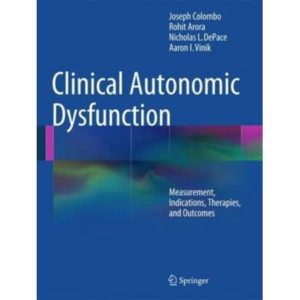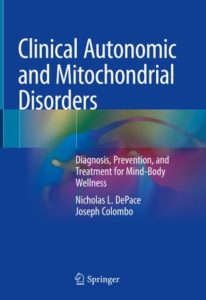
Autonomic Dysfunction Philadelphia
Dr. DePace is an highly experienced and one of the best autonomic dysfunction doctors in the country. He was a full Clinical Professor of Medicine and at Jefferson subsequently and then Hahnemann Hospital/Drexel University.
Philadelphia Cardiologist And Author of “The Heart Repair Manual”
Dr. DePace has published over 100 articles and abstracts in peer review literature. He has written two books. His first book written in 1992 was published by W.W. Norton, New York, NY, The Heart Repair Manual: The Philadelphia Formula for Reversing Atherosclerosis.  Dr. DePace has expertise in treating patients with atherosclerosis and was one of the pioneers in developing techniques noninvasively to stabilize and reverse atherosclerotic plaque in individuals with established vascular disease. His scoring system predated the Framingham risk profile scoring system to risk stratify patients and was published in his 360-page book.
Dr. DePace has expertise in treating patients with atherosclerosis and was one of the pioneers in developing techniques noninvasively to stabilize and reverse atherosclerotic plaque in individuals with established vascular disease. His scoring system predated the Framingham risk profile scoring system to risk stratify patients and was published in his 360-page book.
Dr. DePace has done research in valvular heart disease, coronary artery disease and has published extensively on noninvasive cardiology including echocardiography and stress testing.
Dr. DePace treats thousands of heart patients yearly with various cardiac abnormalities and is a diagnostician. He has obtained boards in lipidology which is the study of cholesterol.
As being board certified in lipidology, he can treat complex abnormalities of cholesterol both with natural substances and with pharmacology.
His book, The Heart Repair Manual, did focus on abnormal lipids extensively along with diet and lifestyle changes.
Autonomic Dysfunction Specialist & Author
 An area of interest to Dr. DePace has been autonomic dysfunction, also known as dysautonomia. The autonomic nervous system is the part of the body that controls the things that one does not normally think of. These are involuntary actions such as digestion, breathing, and heart beating. Abnormalities of autonomic function can cause disabling symptoms and impair one’s quality of life and, when they become severe and disrupt the cardiac autonomic system, can actually be life-threatening.
An area of interest to Dr. DePace has been autonomic dysfunction, also known as dysautonomia. The autonomic nervous system is the part of the body that controls the things that one does not normally think of. These are involuntary actions such as digestion, breathing, and heart beating. Abnormalities of autonomic function can cause disabling symptoms and impair one’s quality of life and, when they become severe and disrupt the cardiac autonomic system, can actually be life-threatening.
Dr. DePace, himself, suffered from abnormalities of dysautonomia, approximately, 15 years ago when he had recurrent fainting episodes which did not improve over six months.
Author of A Text Book On Autonomic Dysfunction
He also had chronic fatigue which he, eventually, was able to get over. He then began to research autonomic dysfunction niche in detail. His textbook, Clinical Autonomic Dysfunction, by Springer Publishers, (measurement, indications, therapies, and outcomes) was published in 2015.
It is the only textbook of its type on autonomic dysfunction and is written predominantly for medical physicians and doctors but can be used by physiologists, nurses, and other health care professionals and established him as one of the prominent autonomic dysfunction doctors.
 Dr. DePace’s third book: Clinical Autonomic and Mitochrondrial Disorders – Diagnosis, Prevention, and Treatment for Mind-Body Wellness. was published in August 2019
Dr. DePace’s third book: Clinical Autonomic and Mitochrondrial Disorders – Diagnosis, Prevention, and Treatment for Mind-Body Wellness. was published in August 2019
This book establishes and specifies a rigorously scientific and clinically valid basis for nonpharmaceutical approaches to many common autonomic diseases and disorders found in clinical settings. It includes lifestyle and supplement recommendations for beginning and maintaining the autonomic nervous system and mitochondrial health and wellness.
The book is organized around a six-pronged mind-body wellness program and contains a series of clinical applications and frequently asked questions.
The physiologic need and clinical benefit and synergism of all six aspects working together are detailed, including the underlying biochemistry, with exhaustive references to statistically significant and clinically relevant studies.
The book covers a range of clinical disorders, including anxiety, arrhythmia, atherosclerosis, bipolar disease, dementia, depression, fatigue, fibromyalgia, heart diseases, hypertension, mast cell disorder, migraine, and PTSD. Clinical Autonomic and Mitochondrial Disorders: Diagnosis, Prevention, and Treatment for Mind-Body Wellness is an essential resource for physicians, residents, fellows, medical students, and researchers in cardiology, primary care, neurology, endocrinology, psychiatry, and integrative and functional medicine.
It provides therapy options to the indications and diagnoses published in our book Clinical Autonomic Dysfunction (Springer, 2014).
Top Rated Postural Orthostatic Tachycardia Syndrome (POTS) Doctor Serving New York, New Jersey, Pennsylvania And Beyond
In the field of autonomic dysfunction or dysautonomia, Dr. DePace sees a large number of patients daily from various parts of the country who have not had results with the autonomic dysfunction treatment, seek second opinions, or have not even had a diagnosis.
Many of them are labeled as having psychiatric or psychological issues when, in fact, they have abnormalities of the autonomic function. One of such serious ailments is Postural Orthostatic Tachycardia Syndrome (POTS).
Whats is POTS Disease?
Postural Orthostatic Tachycardia Syndrome (POTS) is a form of dysautonomia, a disorder of the autonomic nervous system, which controls automatic functions like heart rate, blood pressure, digestion, and temperature regulation.
The autonomic system has two main branches: the parasympathetic nervous system—often described as the “brakes”—which promotes rest and recovery, and the sympathetic nervous system—the “accelerator”—which prepares the body for action during stress or danger. In healthy individuals, these systems maintain a careful balance. When that balance is disrupted, symptoms and health issues can occur.
In POTS, this imbalance becomes especially apparent when a person stands up. The sympathetic nervous system may become overactive, causing a rapid increase in heart rate—typically more than 30 beats per minute (or above 120 bpm in some cases) within 10 minutes of standing—without a corresponding drop in blood pressure.
This leads to symptoms such as dizziness, lightheadedness, fatigue, palpitations, shakiness, nausea, brain fog, and sometimes fainting. POTS most commonly affects women between the ages of 15 and 50 and can develop suddenly, often following a viral illness, injury, surgery, or major hormonal shifts. The condition reflects a dysfunction in how the body regulates blood flow and heart rate in response to changes in posture.
Best Postural Orthostatic Tachycardia Syndrome Treatments in New Jersey, New York and Pennsylvania
Dr. DePace, being one of the highly ranked POTS doctors in New York, New Jersey and Pennsylvania, attempts to do a full clinical evaluation on the patient and review their records in detail.
He goes through all of the prior POTS treatment plans they have been under. He does some basic testing of autonomic function and attempts to work with the patient in an aggressive fashion to improve any autonomic dysfunction that is discovered with a scientific approach and not one that is just empiric.
Dr. DePace has treated patients with autonomic dysfunction disorders like hypermobile Ehlers–Danlos syndrome, mast cell disorders,
Marfan syndrome, post-viral syndromes, patients with reflex sympathetic dystrophy and chronic pain patients, patients with post-traumatic stress, patients with severe diffuse vascular disease, and many other entities and has had tremendous experience in dealing with this.
Not always can a patient be cured but, oftentimes, their symptoms can be alleviated where they can find some clinical improvement and he attempts to maximize their lifestyle if possible.
Many patients are functionally incapacitated with autonomic dysfunction and cannot even get off the couch or out of bed. These are patients that need to be aggressively looked at to see if there is any possibility of remediation.
Many symptoms that may reflect autonomic dysfunction include chronic headaches and migraines, depression, anxiety, chronic fatigue, severe dizziness and presyncope or pre-fainting, syncope or fainting, pounding heart and palpitations, gastroparesis and digestion abnormalities that may involve irritable bowel syndrome and can involve constipation and diarrhea, and of course peripheral neuropathies which are, oftentimes, associated with autonomic dysfunction.
Diabetics, oftentimes, have a high prevalence of autonomic dysfunction. However, other disease disorders can be associated with autonomic dysfunction and sometimes even healthy people develop autonomic dysfunction at an early age.
The aging process causes the autonomic nervous system to degenerate in time, however, some people are predisposed to it prematurely.
If you have symptoms or signs of autonomic dysfunction, you may want to see Dr. DePace get more clarification on the diagnosis or seek, possibly, more treatment options.
Appointments are available, but the entire medical records, or as much as can be obtained, of a patient, are usually required.
Again, he emphasizes that many patients with autonomic dysfunction are misdiagnosed or labeled as having psychiatric or psychological problems when, in fact, they do have a real problem that needs to be identified and treated.
Dr. DePace, as one of the expert autonomic dysfunction doctors, sympathizes with people that are plagued with this disorder since he had a serious bout of autonomic dysfunction for approximately six months at one time.
He is well aware of a lot of the pharmacological agents and treatment modalities since he, himself, took them and could understand when a patient has side effects with various medicines or good results.
Dr. DePace has passed boards in nuclear medicine, echocardiography, cardiology, internal medicine, and lipidology.
Three of the boards are recognized by the American College of Physicians at this point. However, the other two are highly regulated peer review boards. He has also served on the editorial board of one of the preeminent journals in cardiology,
The American Journal of Cardiology, for ten years from 1996 to 2006 where he did peer review for numerous cardiology articles. He still does active research in autonomic function and has published several recent articles and has several that he is preparing for the press at the present time.
In addition, to atherosclerosis and coronary artery disease and autonomic dysfunction, Dr. DePace has always had an interest in valvular heart disease and many of his original publications dealt with aortic valve and mitral valve disease as one of his close family members had a severe mitral regurgitation or leaking problem which required operative repair.
Currently, Dr. DePace has clinical privileges at Hahnemann University/Drexel University, Our Lady of Lourdes Hospital in Camden, New Jersey, and Kennedy Health Care System Hospitals in South Jersey. His office is located in Washington Township/Sewell, New Jersey.
One very important feature of Dr. DePace’s practice is that there is tremendous continuity of care. His nurse practitioner who sees patients with him has been with him for nearly 15 years. He follows his patients in the Kennedy Hospital System when they are admitted from his office and does both hospitalist work and office work which is a very rare combination for physicians to do in this era.
If you think you may be experiencing Autonomic Dysfunction, please contact our office to make an appointment.


